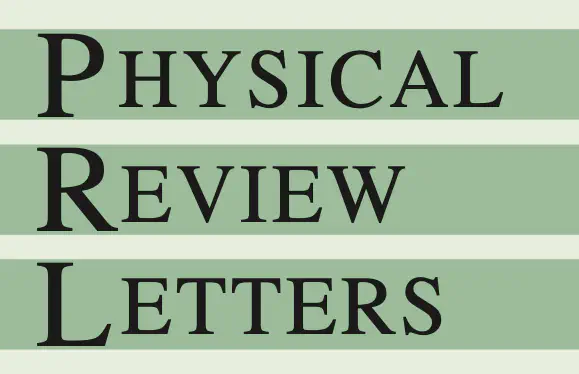Papers accepted by PRL!

Two papers on quantum resource theory, quantum state discrimination and high-order quantum transformation have been accepted by PRL 🎉
Our papers Limitations of Classically-Simulable Measurements for Quantum State Discrimination by Chengkai Zhu, Zhiping Liu, Chenghong Zhu and Xin Wang, and Reversing Unknown Quantum Processes via Virtual Combs: for Channels with Limited Information by Chengkai Zhu, Yin Mo, Yu-Ao Chen, and Xin Wang have been accepted by PRL.
For PRL: Physical Review Letters (PRL) is the world's premier physics letter journal and the American Physical Society's flagship publication. Since 1958 it has contributed to APS's mission to advance and diffuse the knowledge of physics by publishing seminal research by Nobel Prize–winning and other distinguished researchers in all fields of physics.
For the paper Limitations of Classically-Simulable Measurements for Quantum State Discrimination: In the realm of fault-tolerant quantum computing, stabilizer operations play a pivotal role, characterized by their remarkable efficiency in classical simulation. This efficiency sets them apart from non-stabilizer operations within the quantum computational theory. In this paper, we investigate the limitations of classically-simulable measurements in distinguishing quantum states. We demonstrate that any pure magic state and its orthogonal complement of odd prime dimensions cannot be unambiguously distinguished by stabilizer operations, regardless of how many copies of the states are supplied. We also reveal intrinsic similarities and distinctions between the quantum resource theories of magic states and entanglement in quantum state discrimination. The results emphasize the inherent limitations of classically-simulable measurements and contribute to a deeper understanding of the quantum-classical boundary.
For the paper Reversing Unknown Quantum Processes via Virtual Combs: for Channels with Limited Information: The inherent irreversibility of quantum dynamics for open systems poses a significant barrier to the inversion of unknown quantum processes. To tackle this challenge, we propose the framework of virtual combs that exploit the unknown process iteratively with additional classical post-processing to simulate the process inverse. Notably, we demonstrate that an